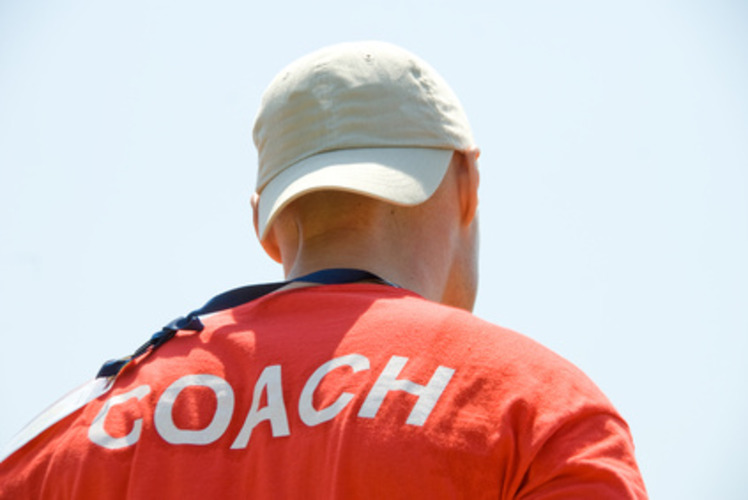
Education Expert on Verdicts of Jerry Sandusky and Philadelphia Monsignor William Lynn
I have no doubt that schools around the country are anxiously reviewing their student sexual harassment policies before school starts again after the summer. Two recent major verdicts — one that found Jerry Sandusky, the football coach at Penn State University, guilty of 45 counts of sexual abuse, and another that found Philadelphia Archdiocese Monsignor William Lynn guilty of failure to protect children from a sexual predator — have raised issues about the moral and legal responsibility to report child sexual abuse in an effort to protect kids. Of course, I don’t believe anyone would doubt the moral imperative and legal duty to protect kids from predators. Or am I wrong?
In both these cases, there was knowledge or convincing evidence that a man or men (one, a trusted coach; others, trusted priests) responsible for the safety of children physically and sexually abused them.
In the Sandusky situation, Penn State football coach Joe Paterno didn’t report the travesty to law enforcement when an assistant coach came to him and said he saw Sandusky having sex with a player in the shower. We now know that the administration of Penn State had knowledge of Sandusky’s crime but didn’t report it. The administration decided to deal with Sandusky directly and thought the abuse would stop. It didn’t, and many boys continued to be harmed.
Lynn knew that priests had sexually abused boys but didn’t report it. Again, a person in authority who had the power to stop the abuse faltered and, perhaps in an effort to protect an institution, chose to risk that young men would be sexually abused and scarred for life. Where is the moral imperative there? Protecting an institution instead of a person — what have we come to? Why do people think it’s OK to turn a blind eye and ignore such incidents of abuse? I really don’t know, and I can’t figure that one out.
When institutions are confronted with evidence of wrongdoing, they tend to circle the wagons. The reputation of the institution becomes more important than finding the truth or helping the victims. We’ve seen this phenomenon in educational, religious, not-for-profit, for-profit, and government organizations too often.
What can schools learn from these verdicts? And what should they do to protect kids?
Be watchful and speak up
Everybody in the school community — teachers, custodians, cafeteria cashiers, school bus drivers, principals — is responsible for the safety of all the students. The school has a duty to protect its students from harm, including the harm of sexual abuse. Staffs must be alert to any reasonable suspicion or actual observation of any sexual abuse taking place. If the custodian observes the physical education teacher kissing and fondling a student outside the door of the athletic office, does that person have a duty and professional responsibility to report what he observed?
Yes! That must be reported to the appropriate child protective agency in the state and law enforcement.
Many schools are under the false assumption that if something is observed or suspected that the administrator should know about it first and then the administrator will make a decision about the information. That’s exactly what went wrong in the Sandusky and Lynn cases. The administrations knew what was taking place, but both made a decision to protect the institution rather than the kids. According to testimony, people who had suspicions about Sandusky said nothing, didn’t follow up, or convinced themselves that what they were seeing was harmless.
A 1998 investigation into Sandusky’s behavior generated no charges. According to testimony, a janitor told his colleagues in 2000 that he’d just seen Sandusky assault a boy in a shower. A few months later, an assistant coach, Mike McQueary, saw another shower attack. Despite all this, Sandusky continued to have access to children for years. Last November, he was finally arrested. The prosecution described him as a serial predator.
Know whom to report to
If a staff member sees or suspects that an inappropriate relationship has taken place between a teacher and student, the staff member needs to know how to report it and to whom. This is where policy and procedure are most important. The policy needs to be specific about how teachers and others in a school should respond to what they see.
Without a clear and adequately communicated policy, some staff members might say, “Oh well, I saw something but I didn’t know what to do.” A good policy is only as good as the understanding of the staff.
Create a culture of protection
Even if a policy against sexual abuse isn’t perfect, the most important thing is to create a culture in which kids are always protected. Nothing should go unreported to the appropriate administrator or law enforcement. Sweeping the dirt under the rug only causes the problem to fester and, as we saw from the Sandusky and Lynn verdicts, harms more than just the victims. We now know that many people and important institutions failed to keep Sandusky from preying on boys, despite direct eyewitness evidence that he was a pedophile.
Development of a school culture that doesn’t tolerate abuse of kids, sexual, verbal or physical, is paramount. Schools need to train their staffs continually about laws regarding the reporting of child abuse and neglect, and about everyone’s responsibility to be watchful and to care enough to act when a child’s safety is at risk.
Hopefully, these verdicts are another wake-up call to schools that they need to be serious about protecting kids. Schools should start the new year by reviewing these cases with their staffs and communicating firm expectations: All kids are to be protected, and any suspicion of harm to a student must be followed up by reporting to a designated person. The message must be, “Stop hurting kids. You can all help by being watchful.”


